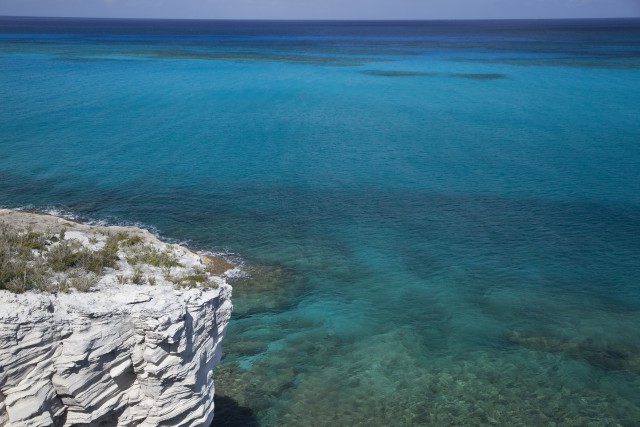
While Boulder will always be better known for its mountains
than its beaches, this week, the city will be recognized as a community
invested in ocean health. NOAA’s National Marine Sanctuary and the state of
California have recognized Boulder as an honorary coastal community, a
distinction fueled by the 2010 creation of the Colorado Ocean Coalition, the
first community-centered ocean organization in the United States created to
form an inland ocean constituency.
The resolution from the State of California acknowledges
Colorado Ocean Coalition’s efforts to organize and educate Colorado’s
residents, scientists, activists, divers and businesses about threats to the
ocean and solutions to those problems.
“I think it’s significant because it empowers inland communities
to take a leadership role in protecting our oceans,” says Vicki Nichols
Goldstein, founder of the Colorado Ocean Coalition. “And it’s always been kind
of a joke, it’s been kind of a funny like oh yeah right, but this recognition
really confirms that people do have an opportunity to make a difference. This is
really confirming that people around the United States and around the world
really are recognizing this effort and I’m hoping this will inspire other
communities to do as we are.”
The city and county of Boulder will present the resolution
on Sept. 21, the first Colorado Ocean Coalition day, during the third annual
Making Waves Symposium.
“Until now, there
has never been a voice in the Mountain States that would speak up for the protection
of oceans,” Goldstein said in a press release. “But now that we have been
recognized as a force for good by the state of California, with one of the
longest coasts in the US, we believe we will be able to push our campaign to
the next level.”
The resolution will be presented at 9 a.m. Saturday, Sept.
21 in the University of Colorado Chem Lab 140, where the speaker symposium for
Making Waves is taking place.
Making Waves opens Friday, Sept. 20, with a Blue Drinks
event at Restaurant 4580. Events throughout the weekend include a Mile High
Blue Exposition and a Mermaid Masquerade Ball, an Ocean Film Festival and a
symposium of speakers that will include Fabian Cousteau, oceanographic explorer
and filmmaker and grandson of ocean explorer Jacques-Yves Cousteau. Fabian
Cousteau’s next mission will involve living underwater at a depth of 63 feet
for 31 days.
The Mile High Blue Exposition, held from 8 a.m. to 5 p.m. on
Saturday, Sept. 21 and 10 a.m. to 5 p.m. on Sunday, Sept. 22, will showcase
more than 50 scuba dive shops, dive resorts, ocean conservation organizations
and other ways to get educated and involved in preserving oceans.
Saturday’s Speakers Symposium is free for the public and
will cover eco-tourism, adventure travel, sustainable seafood and the impacts
of energy production on the ocean.
The Mermaid Masquerade Ball, a night of music and dancing
alongside a silent auction, will be held at the Hotel Boulderado. Ocean-themed
masks are welcome.
The three main threats to the ocean can all come from anywhere
in the country, Synte Peacock, an ocean and climate research scientist at the
National Center for Atmospheric Research, told Boulder Weekly for a 2012 story. Those threats are the loss of big
fish species, which have been depleted about 90 percent since 1950; plastics
that wash downstream and make up an estimated 90 percent of the trash in the
ocean, which includes the Great Pacific Garbage Patch roughly the size of
Texas; and acidification to ocean water, which compromises species from whales
to coral reefs, and is caused by increased carbon in the atmosphere.
“It’s really not about appreciating the ocean in Colorado,
it’s really about, if you appreciate Colorado, you need to do the same things
that you do if you appreciate the ocean,” Dan Basta, director of NOAA’s Office
of National Marine Sanctuaries, said at the 2012 Making Waves during his talk,
“Bolder form Boulder: The Boulder Effect.” Conversations that came out of
Making Waves, Basta went on to say, have changed his strategies for campaigns
around the country to convince Americans to care more about the ocean.
An ongoing theme for the Colorado Ocean Coalition, which
will be showcased Making Waves as at their ongoing Blue Drinks events, is that
everything runs downstream and the choices made by consumers even far inland —
with single-use plastic bags and bottles, the seafood consumed and the
pesticides and fertilizers used — have consequences far downstream.
That theme will be illustrated during the Ocean Film
Festival. Viewers will have a chance to explore the headwaters of the Colorado
River, dip into the ongoing damage of the Deepwater Horizon offshore oil spill,
tour the Pacific Garbage Patch, watch bodysurfing at its best and get to know
various marine species from manta rays to lionfish, an Indo-Pacific Ocean
species now overrunning waters in the Atlantic Ocean and Caribbean Sea. The
Ocean Film Festival runs from 11 a.m. to 7 p.m. on Sunday, Sept. 22, at the
Cristol Chemistry Boulder on the CU Campus. A day pass to the festival is $35.
A full schedule can be found online at www.coloradoocean.org.














